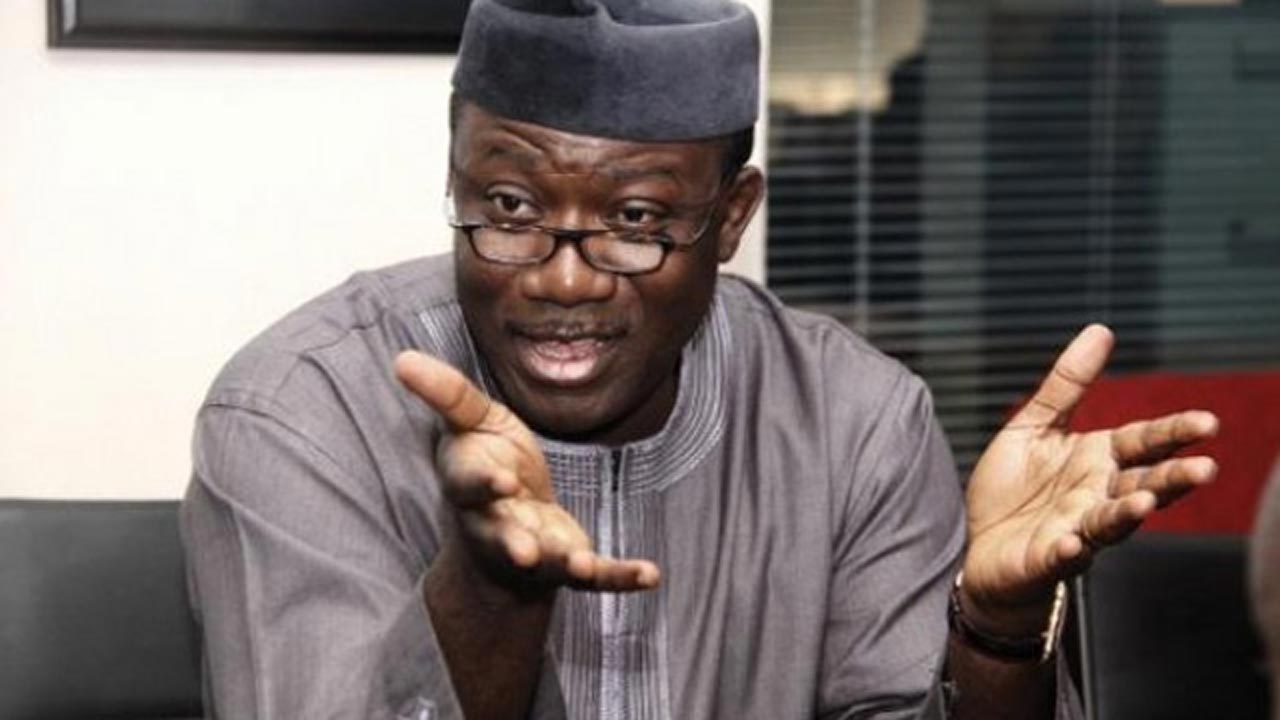
Speaking when he visited the outgoing governor of the opposition Peoples Democratic Party (PDP), Mr. Ayodele Fayose, the Political/Economic Chief, US Consulate, Mr. Osman Tat, expressed the preparedness of the US to monitor the various stages of the gubernatorial election.
The US consulate official stressed that the expectation of his home government is that the conduct of the July 14 poll should set a higher standard in the organisation of elections in Nigeria.
The wish of the American delegate, like those of most Nigerians, is that the election is free, fair and transparent. Briefly, that there is no violence or intimidation of voters during the election.
Governor Fayose recalled that how in 2014 the same US praised the election that brought him to power, saying that the Americans even recommended it as a benchmark for the then approaching 2015 general election.
It could be a measure of the US interest in the Ekiti governorship poll that a similar one from the US Ambassador, Mr. Williams Stuart Symington, preceded Tat’s visit.
But as Fayose pointed out, the people’s might is greater and potent more than any potentate’s. Baring the incidence of intimidation and other electoral breaches therefore, the ultimate decision of who carries the day rests on the 842, 731 registered voters in Ekiti.
The Independent National Electoral Commission (INEC) State Resident Electoral Commissioner, Abdulganiyu Raji, had last January expressed dismay that a total of 215, 000 registered voters were yet to collect their Permanent Voter Cards (PVC) a sine qua non for participation in the balloting.
2014 Throwback
While the US’ interest is pinned on the fidelity of the electoral process and credibility of eventual outcome, most Nigerians, particularly Ekiti voters have not forgotten the surprising outcome of 2014 episode.
In the June 21, 2014 poll, a former governor of the state, who was irregularly impeached in his first term was voted back into power, even as the incumbent was denied a second term mandate.
In that particular election, out of the 733, 766 registered voters, only 369, 257 were accredited to vote, while the total number of votes cast was 360, 455.
At the end of balloting, Fayose of PDP scored a total 203, 090 votes to beat the incumbent, Dr. John Kayode Fayemi of the All Progressives Congress (APC).
Although 18 political parties participated in the governorship poll, it ended up as a direct battle between the incumbent APC and its main challenger, PDP, which controlled political power at the national level.
The July 14, 2018 governorship presents as a throwback to the 2014 encounter, but with slight reversal of specifics.
For instance, Fayose who became the giant killer in 2014 is in opposition PDP, while Fayemi, who wants to requite the drubbing of 2014 in the 2018 governorship, is in the APC that controls political power at the national level.
Again, while PDP was struggling to retain the goodwill of Nigerians in 2014, APC, which is the ruling party, is faced with debatable record of performance in the past three years of its ascendance.
But, although Fayose will not directly be on the ballot on July 14, he appears to be taking serious interest in the poll as if it is a referendum on his 2014 victory.
More than that, the outgoing governor seems to know the implication on his political future of having his defeated rival succeed him in office.
Nonetheless, Fayemi, who shared close space with President Muhammadu Buhari, shortly after APC defeated PDP in 2015, seems to feel that July 14 is his own time to pay back Fayose in his coins.
It must be against that background that the US emphasis on credibility of the exercise, sans intimidation and violation of laid down regulations comes into perspective. Will Ekiti 2018 mirror 2019? The chances are remote.
Mirror Of Ondo 2016
EKITI became the lone PDP state in the entire southwest after its sibling, Ondo, fell to the new ruling party, APC in 2016.
Like Fayose, the former governor of Ondo State, Dr. Olusegun Mimiko wanted to leave behind his preferred choice as successor.
Yet, unlike Mimiko, Fayose and his protégé are not standing on a troubled platform, even though one of the prominent governorship aspirants in Ekiti has announced his resignation from the PDP.
Although it does not seem probable that Prince Adeyeye would cast anchor on APC, how far his perturbation with the party and the governorship primary could go to simulate the mischief of Jimoh Ibrahim in Ondo2016 is hard to contemplate.
But one remarkable fall out of the Ondo governorship election, which the US Economic cum Political Chief, Mr. Osman Tat, failed to mention is the incidence of inducement.
Inducement of voters is gradually emerging as a soft form of electoral intimidation in Nigeria. After Ondo, it happened in the November 19, 2017 governorship of Anambra State.
[ad unit=2]



